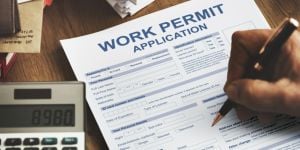
Malaysia is a country full of opportunities. It is an essential economic platform in Southeast Asia. Therefore, many expatriates want to start their own business there. Here is a short, but non-exhaustive guide that will help you get started if you wish to start a business in Malaysia.
Malaysia is famous for being a land of contrasts where the beauty of vast untouched jungles blends with big metropolises that home gigantic skyscrapers. In that same vein, other major cities of the country form a nervy network that attracts many foreigners who wish to set up businesses in Malaysia. However, expatriates who want to work in Malaysia and obtain the right to do business there need to undergo a plethora of administrative procedures that are sometimes exhausting and require a lot of knowledge about the particularities of this country.
First, you should know that a business permit, or Business License, is essential for anyone wishing to do or start a business in Malaysia. This permit must necessarily include various licenses, registrations, permissions, and official approvals. Therefore, be aware that any request for prior authorization must be made to an office of Pihak Berkuasa Melesen (PBM), the Malaysian licensing authority. Be cautious in identifying the right office. Proper licensing will depend on the area where you want to start your business and the type of activity you plan to operate and more...
Before you can legally do business in Malaysia, you will need to obtain one or more General Business Licenses, as well as other permits that are related not only to a specific industry or economic sector but also to the type of activity of your business. In order for everything to comply with Malaysian standards, these applications must be filed with different local authorities and institutions. Also, be aware that compliance standards vary accordingly to the institution you will be dealing with.
All this administrative paperwork, which some even describe as labyrinthine, can sometimes be cumbersome for new investors or for those who are unfamiliar with the Malaysian administrative culture. The government has been aware of this for some years now and has launched several initiatives that aim at simplifying processes, facilitating the ability to do business in the country, and encouraging investment. Among these initiatives lies the digitization of applications and procedures related to different licenses and permits. This can be of great help in some sectors but less in others.
As a matter of fact, you will still need to make your requests personally in some cases and be careful to reach out to the appropriate body that will issue relevant documents. In general, the Malaysian public administration is quite efficient. On the worse end, waiting times can be long, especially for specific requests. In some other cases, you will, unfortunately, have to wait several hours while queuing. We advise you to take care to free up your day in cases where your physical presence is required.
The MalaysiaBiz portal is another government initiative to streamline investor applications. It lists all existing operation licenses and allows you to quickly identify the necessary authorizations, licenses and permits you will need. The authorities have also launched a portal for SMEs, coined SMEinfo. The site contains valuable information, as well as advice for entrepreneurs to help them comply with the many Malaysian standards.
Remember that you will need to obtain at least three different types of licenses/authorizations/permits before operating. They are the general business license, the industry or business sector-specific licenses, and finally the product-specific licenses. Below you will find general information for each of the three categories mentioned.
General Business License
General Business Licenses include all necessary licenses for an investor to do business in Malaysia. There is no bypass. Otherwise, you would be operating illegally, and be therefore liable to heavy penalties such as fines, or the outright closure of your business. Moreover, one of the most serious consequences, in such a case, is the loss of reputation.
In the business world in Malaysia, and in Asia in general, reputation is extremely important. Moreover, news travels fast: if a company is flagged as operating without a permit or license, many partnerships are likely to suffer. And so, even in cases where that might be a simple error or some misunderstanding.
Trust is essential for any business activity in Malaysia, and not being up to standard will lead potential investors to distrust you. That's why all that paperwork is essential not only for the legality of your business, but also with regards to its reputation and potential for growth. Don't be negligent, and make it a point to always comply with local standards.
There is the list of requirements for the issuance of a business license:
- Company registration
- Registration of the company and its employees with the tax authorities
- Registration with the Employee Provident Fund, called in Malaysia the Employee Provident Fund (EPF)
- Registration with the social security organization of Malaysia, the PERKESO
- Registration with the Human Resources Development Fund
- Obtaining a commercial premises license and a sign license
It should be noted that applications for commercial premises license and sign license must be filed with the competent government authorities, and that the conditions for obtaining them may vary according to different criteria.
Licenses specific to an industry or economic sector
Depending on the type of business you want to start up in Malaysia, you will need to apply for a business license from a specific institution, in addition to the general business license applications. These special licenses are issued to companies operating within one of the business sectors or industries listed by the Government of Malaysia. We strongly advise you to consult the lists of industry and business sector established by the Malaysian government on the MalaysiaBiz online portal.
Be careful though! Not all the activities listed thereon are necessarily accessible to foreign companies unless, of course, you have Malaysian partners onboard, which could make things much easier. If this is not the case, you will probably need to use a company offering investment facilitation services. This still young sector has been in full development in Malaysia for a few years, but the prices are not affordable to all investors.
Networking in Malaysia can be a good idea to have a better idea of available opportunities and of the growth potential of the different Malaysian industries. While most foreign entrepreneurs start their businesses in or around Kuala Lumpur, several other cities are experiencing increased development. This can be an excellent avenue to start investing in Malaysia.
Below are some examples of business sectors that stand open to foreigners in Malaysia, along with links to the institutions you will need to apply to for a specific license:
Manufacturing sector
For licenses specific to the manufacturing sector, the relevant Malaysian authority is the Malaysian Investment Development Authority (MIDA). The authority issues several types of licenses to operators in the manufacturing sector, so it is advisable to visit its website before starting any process. MIDA offers several online services for the standardization of companies in the sector, all available on the MIDA e-services page of its internet portal.
Retail and trade sector
It should be noted that foreign companies wishing to operate in the retail and trade sector must obtain special authorization from the Ministry of Internal Trade and Consumer Affairs beforehand. The companies concerned are those whose foreign shareholding is at least 51%. Visit the portal of the ministry concerned for more information on this subject, and click here for more details on the various authorizations and licenses required to operate in this sector.
The telecoms sector
The telecommunications sector is regulated by the Malaysian Communication and Multimedia Commission (MCMC). Information on operating conditions in this industry is listed on the commission's website. Broadcasting channels (television, radio, online, etc.) must also appeal to the MCMC to obtain broadcasting rights.
The oil exploration sector
The search for fuel deposits is controlled by Petronas in Malaysia. Be aware that Petronas, or Petroliam Nasional Berhad, is a company entirely financed by the Malaysian government, which makes it a public company. Details on the normalization conditions for entrepreneurs wishing to embark on the search for oil are openly accessible on the Petronas website.
The construction sector
The authority governing the construction industry in Malaysia is the Construction Industry Development Board (CIDB). It grants licenses to companies in the sector.
The banking sector
The Malaysian central bank, Bank Negara, will be your contact if you wish to open a bank in this country. Mandatory licenses and authorizations are listed on the bank's website, as well as other authorities you will need to contact to obtain an operating license.
Occupational safety and health sector
This sector is regulated by the Department of Occupational Safety and Health, also known as DOSH in Malaysia. To apply for an operating permit, you can register directly online here.
Licenses issued by the National Water Services Commission
The National Water Services Commission of Malaysia (better known in the country under the acronym SPAN) issues licenses to operators in the construction sector requiring specific authorizations for any work on the national water distribution network, such as for example for network connections. An application for this type of license can be made online, which will allow applicants to receive an e-Permit from SPAN.
As you can see, there are many specific licenses to obtain depending on your industry. While for some of these licenses you have the option of applying online, others will require you to go in person to the offices of the relevant government institution.
To streamline requests and application process for investors, the Malaysian authorities have launched BLESS, the acronym for Business Licensing Electronic Support. This program has the potential to greatly facilitate the process for entrepreneurs. The department has an online portal, which brings together all the information necessary for entrepreneurs, regardless of the targeted sector of activity.
BLESS will help you identify your sector of activity and initiate requests for authorizations and/or licenses for specific operations, which you will need to seek from the various ministries and government agencies concerned.
Specialized licenses to economic activities
This type of license allows the Malaysian government to regulate different kinds of specific activities. This type of license requires the investor to comply with certain regulations that guarantee public safety and the integrity of national infrastructure. For example, if your business requires the operation of machinery or vehicles, their proficiency certificates (which must be updated regularly depending on the type of machinery or vehicle) fall into this category.
Below are some examples of licenses/certifications affected by this type of specific license:
Certificate of fitness for vehicles or machines
- Government authorization for expatriate positions
- Approval to install/relocate/modify air pollution control equipment (bag filter and chimney)
- Approval of a construction plan
- Sales tax license
Be however aware that the certifications and authorizations mentioned above only serve to illustrate the type of documents that you will need to seek from the authorities. There might be many others, depending on your type of professional activity. Some of them must be obtained before starting your business, while for others you can still apply along the way, such as for a building permit if you are starting a construction company.
Useful links :
Ministry of Domestic Trade and Consumer Affairs
Official portal of the Malaysian Communication and Multimedia Commission (MCMC)
We do our best to provide accurate and up to date information. However, if you have noticed any inaccuracies in this article, please let us know in the comments section below.












Comments
1Nice article! After setting up your company in Malaysia, you must obtain the necessary business licenses required.